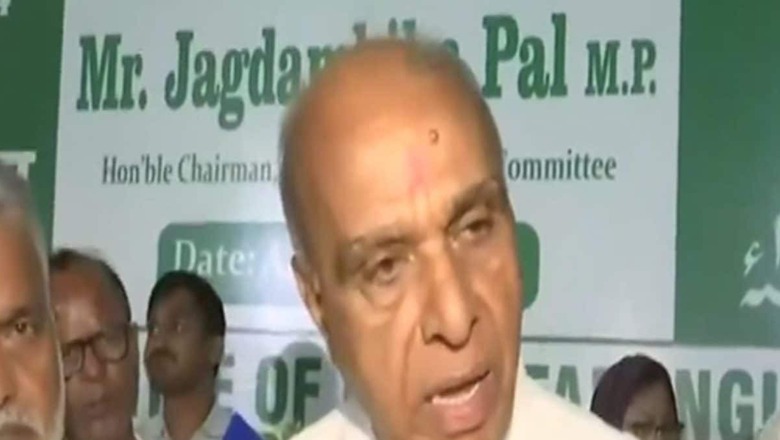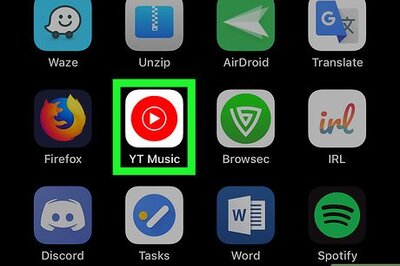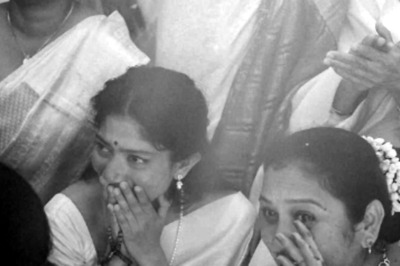
views
There were fireworks at the second meeting of the Joint Parliamentary Committee (JPC) constituted to scrutinise the Waqf (Amendment) Bill, 2024. The meeting which began at 11 am went on till 7.30 pm on Friday.
Sources say Bharatiya Janata Party MPs who were at the meeting complained that unruly opposition lawmakers did not allow many of them to speak and make their points.
On the other hand, some opposition MPs said that the BJP was using a high-handed approach and made personal remarks against them.
According to sources, there was a bitter war of words between BJP MP Dilip Saikia and Aam Aadmi Party’s Sanjay Singh. In response to a personal comment made by Saikia, Singh allegedly lashed out, saying that the ruling party does not understand the meaning of the Constitution or its implication, but is merely busy grabbing power. He said the classic example was what was panning out in the national capital and it was for everybody to see. The lieutenant governor of the national capital was constantly trying to undermine the authority of the elected government, he said. Singh went on to say that it was this government that arrested him and kept him in jail for six months but was not able to prove anything against him. This was after Dilip Saikia questioned Sanjay Singh, saying that a collector given power would mean the control would stay with the government. Saikia said this was the condition in Delhi but not in the rest of the country, which led to Singh lashing out at him.
At some stage during the meeting, say sources, a number of opposition MPs staged a walkout of the meeting, citing the “attitude” of the government. Those who walked out included DMK MPs MM Abdulla and A Raja, Imran Masood from the Congress, Arvind Sawant from the Shiv Sena (UBT), as well as AIMIM’s Asaduddin Owaisi.
Sources say it so happened that the two delegations who were asked to depose before the panel on Friday had a common lawyer as a representative. When the lawyer tried to speak a second time, the ruling MPs stopped him. The opposition MPs were peeved by this move and said that the chair couldn’t cite any appropriate ruling for disallowing him to speak. Later, these MPs went back to the meeting.
In fact, when one of the officials said that this bill would be beneficial for the Bohra community and Afghanis instead of Aga Khanis, which seemed to be a slip of the tongue, some opposition MPs jokingly asked “whether the bill was for Bharat or Akhand Bharat”.
At the second meeting, the JPC called the All India Sunni Jamiatul Ulama, Mumbai, Indian Muslims for Civil Rights, New Delhi, Uttar Pradesh Sunni Central Waqf Board, and Rajasthan Board of Muslim Waqf to depose before it.
A notable opponent of the bill, Owaisi submitted another written note on his objections to chairman Jagdambika Pal. He said that in the absence of protection such as “waqf by user” of such religious places, it would be violative of “freedom of religion”, enshrined in Article 25 of the Constitution, which provides for the state to protect places of worship from being converted, demolished, or desecrated.
The Waqf (Amendment) Bill, 2024, was introduced in the Lok Sabha on August 8. The government led by minority affairs minister Kiren Rijiju then announced on the floor of the house that they were ready to send this bill for parliamentary scrutiny.
The next meeting of the committee will be on September 5.




















Comments
0 comment